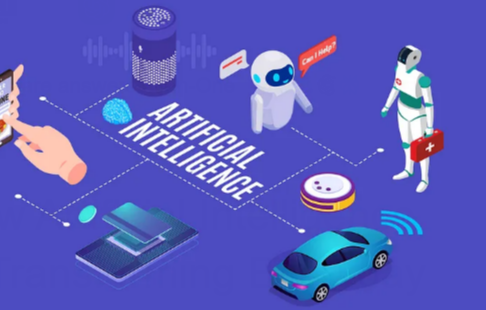How Artificial Intelligence Is Enhancing Customer Service
Artificial Intelligence is increasingly shaping the landscape of customer service. By integrating chatbots, businesses now offer round-the-clock support, significantly improving response times. Moreover, AI’s ability to analyze customer data allows for highly personalized interactions, enhancing satisfaction and loyalty. Predictive analytics takes this a step further, enabling companies to anticipate customer needs. However, the true extent of AI’s impact on customer service remains to be explored in depth.
The Rise of Chatbots in Customer Support
The emergence of chatbots has transformed the landscape of customer support, offering a streamlined approach to addressing consumer inquiries.
By enhancing chatbot efficiency, businesses can significantly reduce response times, fostering user engagement. This strategic implementation allows for 24/7 availability, empowering consumers with immediate assistance while alleviating the pressure on human agents.
Ultimately, chatbots represent a revolutionary shift towards a more liberated customer service experience.
Personalized Customer Experiences Through AI
Chatbots have laid the groundwork for a more personalized approach to customer service, shifting the focus from generic responses to tailored interactions.
By leveraging customer insights, businesses can create experiences that resonate deeply with individual preferences.
This strategic use of AI enables the delivery of tailored recommendations, fostering a sense of connection that enhances customer satisfaction and promotes brand loyalty in an increasingly competitive landscape.
Read Also: How Artificial Intelligence Is Changing the Travel Industry
Predictive Analytics for Enhanced Service
While many businesses have embraced AI-driven customer service tools, predictive analytics stands out as a transformative force in anticipating customer needs and behaviors.
By leveraging data-driven insights, companies can gain a nuanced understanding of customer behavior, enabling them to tailor interactions proactively.
This strategic approach not only enhances customer satisfaction but also fosters long-term loyalty, allowing businesses the freedom to innovate and grow.
Streamlining Operations With Automation
As businesses strive to enhance efficiency and reduce operational costs, automation emerges as a pivotal solution for streamlining customer service processes.
By implementing automated workflows, organizations can significantly improve operational efficiency, allowing staff to focus on more complex tasks that require human insight.
This strategic shift not only fosters a more agile environment but also empowers employees, ultimately enhancing customer satisfaction and loyalty.
Conclusion
In a world where artificial intelligence claims to enhance customer service, one might ironically ponder whether the true essence of human connection is sacrificed in the process. While chatbots and predictive analytics undoubtedly streamline operations and personalize experiences, they simultaneously risk reducing the warmth of genuine interaction. Thus, as businesses celebrate the efficiency of AI, they must also grapple with the paradox of technology: improving service while potentially alienating the very customers they aim to serve.





